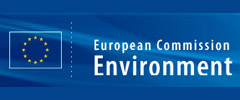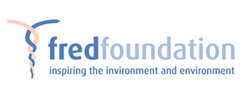Pesticides in Georgia – no knowledge, no regulation, no protection
Project: Reducing the use of hazardous chemicals in developing countries
12.09.2011 |Anna Samwel
discussing alternative pest management
Different Georgian toxicologists and experts presented the problems related to pesticides in their field of knowledge, and a clear picture emerged on the many problems as well as the strong need for action from the Georgian government and public. The training was organized by SEMA and WECF on the premises of RCDA.
Georgia has abolished the law on toxic chemicals in 2010 in expectation of the ratification of the law on toxic building materials. The ratification process took one year, in which import was not regulated at all due to the absence of laws. The border control registered several hundreds of kilograms banned pesticides entering the country, but had no legal base to stop them. This information was revealed by Greens Movement of Georgia by simply analysing import information provided by the relevant authorities. (www.mop.ge)
Besides the banned pesticides that are legally imported, different pesticides that are not registered at all by the state authorities are imported illegally and sold on the market.

The Georgian representative of the European chemical company BASF and phitosanitary expert drew attention to the weak state requirements for registration of pesticides that are imported into the country. This results in Chinese, Turkish and other low income countries to make cheap replicates of 'western trademark pesticides'. Those replicates are much cheaper than their originals but containing toxic not tested by-products and are often less effective to their target pest.
WECF expert Margriet Samwel presented the lessons learned from Europe and what Georgia can learn from that to avoid making the same mistakes. WECF has observed a lack of knowledge on pesticide handling among farmers but especially among pesticide shops, where pesticides are stored, handled and packed unsafe.
Several participants reported cases of farmers getting the wrong advice for treating their crops. Some retailers and producers advice farmers to apply more than officially recommended in order to increase their offset. In other cases the retailers were just misinformed and gave farmers the wrong proportions of dilution of the pesticide, resulting in partly destruction of the crop. The Georgian Environmental and Biological Monitoring Association (GEBMA) draw attention to the lack of monitoring data on the health and environmental effects of pesticides in Georgia.
Organic agriculture and the complete abolishment of chemical pesticides was presented by SEMA as a viable option for Georgia to improve agricultural production and abolish the use of hazardous chemicals in agriculture. A demonstration plot at a nearby organic farmer where only bio-pesticides, plant tinctures and favourable neighbouring plants were used for crop protection was inspected.

The participants agreed that the most urgent issues to address are adequate regulation and education of the retailers and end users on correct use and non-toxic alternatives. Policy recommendation need to be drafted and a strong public campaign initiated and followed up to draw attention on this unfavourable situation, for the sake of the health of the Georgian people and the environment.
---------------------------------------
This training: “Pesticides –Needs and Risks. Sustainable Agriculture –a Chance for a Healthy Environment” was carried out in the frame of the project: ‘Reducing the use of hazardous chemicals in developing countries: potential of implementing safer chemicals including non-chemical alternatives - tools for Georgia and the EECCA region’ and is financed by the SAICM Quick Start Trust Fund – UNDP. The training session will be followed up by a session on alternatives for toxic pesticides in September 2011.
Related News
Meet the Winners of the Gender Just Climate Solutions Award at COP24
On the 70th anniversary of the Universal Declaration of Human Rights, we awarded Gender Just Climate Solutions Winners at the climate negotiations in Katowice, Poland
11.12.2018
Invitation: Gender Just Climate Solutions Award 2018
10 December, COP24 Katowice
04.12.2018
Getting to the Future We Want
4-7 November, Brussels: European Environmental Bureau’s (EEB) Annual Conference
12.11.2018
GoodFood4All
WECF and partners all over Europe start GoodFood4All Campaign
06.11.2018
#Ruralwomen: join our Women2030 campaign!
15.10.2018







































